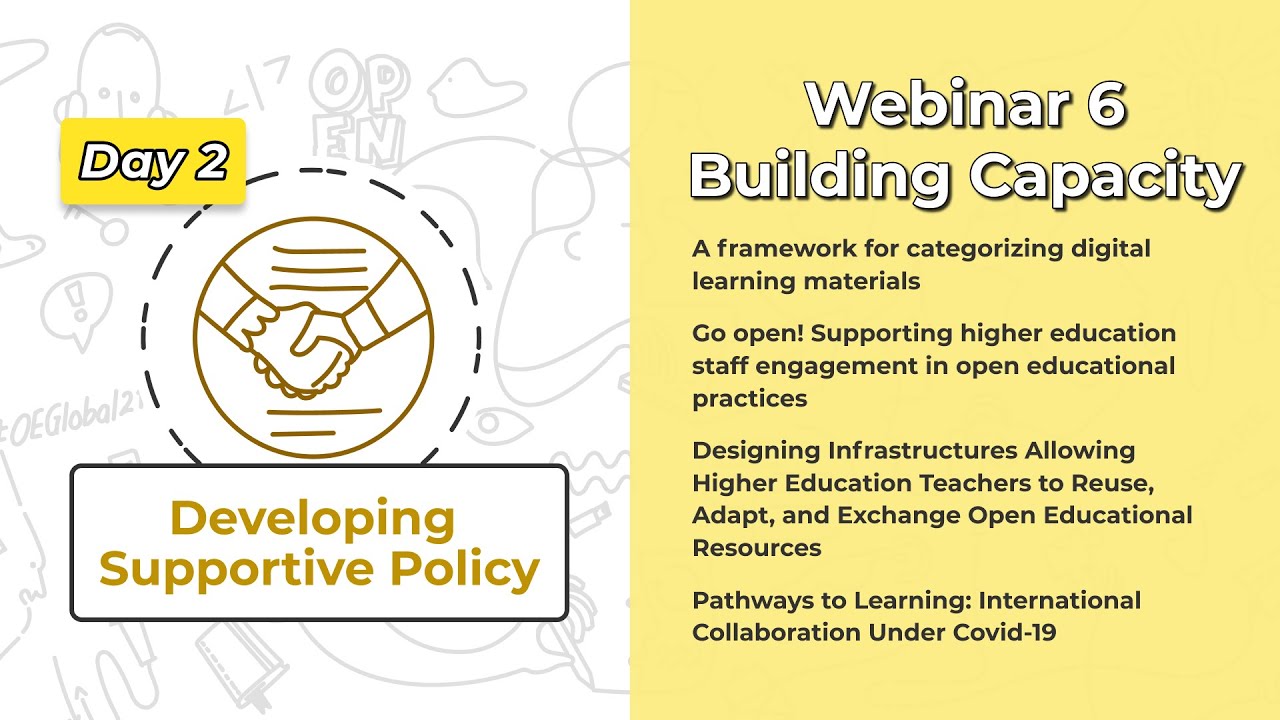Robert Farrow (The Open University), Anne Adams (The Open University), Magreth Bushesha (Open University of Tanzania), Olivier Biard (The Open University), Simon Cross (The Open University), Chris Edwards (The Open University), Matthew Foster (The Open University), Margaret Ebubedike (The Open University), Christothea Herodotou (The Open University), Nashwa Ismail (Institution of Educational Technology), Felix K Olakulehin (Federal University, Oye-Ekiti, Nigeria), Kate Lister (The Open University), Khehla Ndlovu (University of South Africa), Edephonce Nfuka (Open University of Tanzania), Dorothy Ofoha (National Open University of Nigeria), Rachel Rogers (The Open University), Kris Stutchbury (The Open University), Denise Whitelock (The Open University)
The Recommendation on Open Educational Resources (OER) (UNESCO, 2021) emphasizes in its key aims the importance of (i) “developing the capacity of all key education stakeholders to create, access, re-use, re-purpose, adapt, and redistribute OER, as well as to use and apply open licenses in a manner consistent with national copyright legislation and international obligations” and (ii) “fostering and facilitating international cooperation [by] supporting international cooperation between stakeholders”.
Both these aspects were present in a recent open education research collaboration between The African Council for Distance Education and The Open University (UK). Pathways to Learning: new approaches in higher education (OpenLearn, 2020a) hosted two free professional development programmes for university lecturers, instructional designers, technical and professional staff, managers, and heads of department who share responsibility for providing quality distance and online learning.
• A Teacher Educator programme, Skills for 21st Century Learning and Teaching (OpenLearn, 2020b)
• A Tertiary Educator programme, Take Your Teaching Online (OpenLearn, 2020c)
The courses ran over six weeks between 13th July and 20th August, 2020, and was characterised by a rapid rollout of online learning during the Coronavirus pandemic. The programmes combined a course of study using OER materials with supplementary activities including a total of 12 webinars and interactive events alongside new platforms.
• The pandemic led to a substantial shift in teaching across the African continent and a requirement to better understand and gain experience of online learning. Change is likely to persist post-pandemic, although infrastructure and cultural barriers are reported.
• There's evidence that the programmes led to important understanding of course design and confidence in online facilitation for a large majority of participants.
• There's evidence that the programmes built confidence, particularly through the experiences of these educators themselves learning online with well-designed materials, and engaging with platforms and experts.
• There is evidence that each of the elements and activities were appreciated by some learners. The open courses were seen as most useful; community events and forums added substantial value to these.
• The flexibility and choice offered in the programmes led to different behaviours. Many aimed to complete all the available activities despite time pressures and other barriers. Asynchronous presentation was appreciated.
• Given the courses were free to join and many educators faced barriers and pressures; retention figures were very positive with around 66% of those who engaged in the first week of each programme completing the rest of these programmes.
• There is qualitative evidence of current and expected impact from the programmes on practices and strategies, particularly in the interviews. Individuals felt greater confidence to push for change and integrated the concepts from the programmes (such as learning design or OER) as part of the shift to greater online/blended approaches. At the same time, both cultural and practical barriers persisted.
The evaluation of the Pathways to Learning project provides a great touchstone for reflecting on the kinds of agile, open collaboration that can build international capacity for OER projects and the communities that sustain them.
Extended abstract: OE_Global_2021_paper_85.pdf 📄
Webinar Information
This presentation is part of Webinar 06 Building capacity taking place in your local time → .
Webinar Access (registered conference participants only):
![]()
![]() Go to Webinar 06
Go to Webinar 06
UNESCO OER Action Area: Building capacity
Language: EnglishSee the other presentations that take place in this webinar.
Presentation Recording
Participate
Before the webinar the authors will be asked to reply below with links to their presentation materials, related videos, and other relevant links, as well as prompts for discussion here.
For anyone that missed the live session, an archive will be posted here as soon as possible.
Conference participants are urged also to reply below with questions, comments for the presenters or to share related resources.
